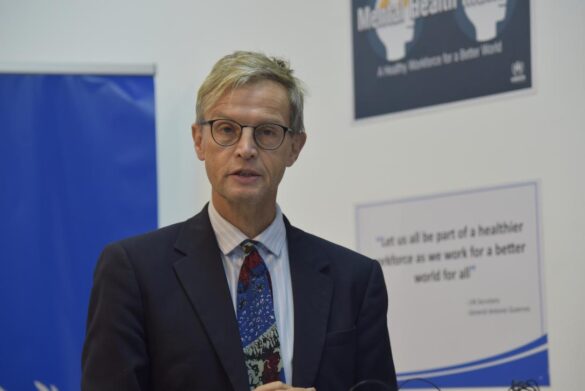By Guya Scopas Bethuel
The European Union has called on the Government of South Sudan to urgently release funds for the country’s long-delayed constitution-making process, warning that without political will and peace, citizens will once again be denied the chance to shape their nation’s future.
Speaking at a workshop on constitutionalism and federalism in Juba, the EU’s Acting Head of Delegation, Lothar Jaschke, described the process as a “once-in-a-generation opportunity” for South Sudanese to agree on how they want to be governed.
“This is about more than a legal text,” he told participants. “A constitution should be a founding document for reconciliation, unity, and a fair sharing of power and resources. It is the people’s contract with those who govern them.”
The EU has invested €4 million to support the constitution-making process and continues to chair the international committee on constitutional affairs. But Jaschke reminded the audience that, five months after the official launch of civic education and public consultations, the National Constitutional Review Commission (NCRC) still lacks funding from the government.
“The government promised support, but it has not happened yet. We hope it will be soon,” he said.
At the same time, the EU envoy expressed deep concern about renewed fighting in Upper Nile and other regions, where bombings, clashes, and human rights abuses have once again forced civilians to flee.
“Violence breeds violence. This has to stop,” Jaschke said firmly, adding that peace-monitoring bodies like CTSAMVM and RJMEC must be allowed full access to investigate recent incidents.
He also called on political leaders to choose their words carefully: “We need a reconciliatory tone, not inflammatory statements. People need a safe and open environment to take part in the civic campaign.”
Despite the challenges, Jaschke reassured South Sudanese that the EU remains a committed partner in their journey toward peace and democracy.
“Our overall offer is to accompany this country on its path to stability and to support the people for a future worth living,” he said. “South Sudan needs a permanent constitution that can unite its citizens and build an enduring social contract—now more than ever.”
The workshop, attended by members of the NCRC and facilitated by the Max Planck Foundation, is part of ongoing efforts to educate leaders and citizens on federalism and constitutionalism as the country works to end years of political instability and conflict.



